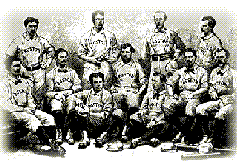
With its inaugural season underway in 1876, baseball’s new
National League quickly took hold. As the young nation grew, its new
national pastime grew with it. By the turn of the century,
professional baseball was an American fixture. By 1903 the National
League champion Pittsburgh Pirates would meet Boston from the newly
formed American League to give the world baseball’s first World
Series.
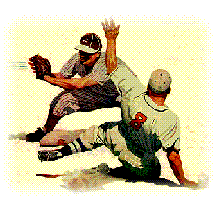
By now the game of baseball increasingly focused on the
skills of its athletes on the field. Having helped to
develop and spread baseball’s nationwide popularity, Beer
Can Baseball quietly began fading into obscurity as
owners now encouraged their fans to come to their ballparks
to enjoy simply watching the game.
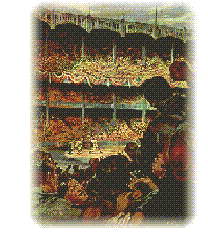
For fans, tough times still lay ahead — notably the
"Black Sox Scandal" of 1919. But the game by now was so
deeply ingrained in the American way of life that it
would not only survive its occasional difficulties, it
would grow and prosper in spite of them. Whatever the
world’s condition, one thing
every American counted on every
year was the playing of baseball’s fall classic.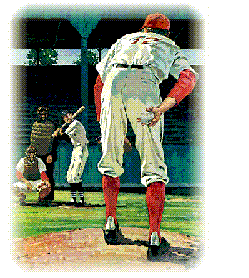
Through worldwide depression, two World Wars and other
major wars, assasinations and social upheaval, Americans
still paused every autumn to enjoy the greatest event in
sports — The World Series.
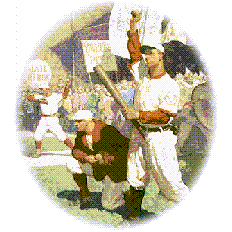
As the 1994 season dawned, the game of baseball seemed
ready to enjoy unprecedented success. The previous season,
70.2 million fans packed 28 major league stadiums
throughout North America, an all-time record.
Fan
interest had never been higher.
But
trouble was brewing. The game which had survived every world
crisis
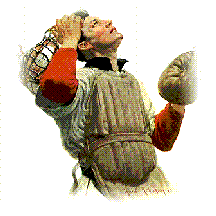 for 115 years would now prove the only thing it couldn’t
handle was its own success. Facing once unimagined prosperity,
owners and athletes found themselves locked in a death grip over
control of baseball’s growing fortunes. Left on the outside
looking in were — the fans. for 115 years would now prove the only thing it couldn’t
handle was its own success. Facing once unimagined prosperity,
owners and athletes found themselves locked in a death grip over
control of baseball’s growing fortunes. Left on the outside
looking in were — the fans.
The end came with a season
suspending walk-out on August 12, 1994. Millions clung to hopes the
strike would be brief. But talks soon broke down and the dreaded
announcement finally came in September. For the first time in nearly
a century, The World Series was cancelled.
Though the legendary Alexander Doubleday had years earlier
declared that baseball was created for its fans, the fans were now
shut out — and they mourned for the game they loved.
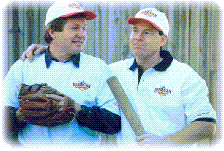 In
the small college town of Lewisburg, Pennsylvania, two friends
and neighbors — Craig "Catfish" Fogel and Tom "Terminator" Miller
— mourned along with them. Lifelong baseball fans, the two friends found
themselves enjoying a brew together on the very night of the scheduled
opening game of the cancelled World Series. "Terminator" began
reminiscing, recounting for his friend the age-old baseball stories
told him as a boy by his great-grandfather. In
the small college town of Lewisburg, Pennsylvania, two friends
and neighbors — Craig "Catfish" Fogel and Tom "Terminator" Miller
— mourned along with them. Lifelong baseball fans, the two friends found
themselves enjoying a brew together on the very night of the scheduled
opening game of the cancelled World Series. "Terminator" began
reminiscing, recounting for his friend the age-old baseball stories
told him as a boy by his great-grandfather.
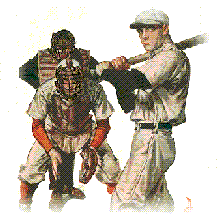 Enthralled
as a youngster by his “Great-Grandaddy's" first-hand accounts of
the game’s earliest days, he now repeated for his friend the tales of a
long-forgotten era when it was the fans who had mattered most. Fondly,
he recalled his great-grandfather’s stories of the spectators’ version
of the game he had loved called, "Beer Can Baseball." Enthralled
as a youngster by his “Great-Grandaddy's" first-hand accounts of
the game’s earliest days, he now repeated for his friend the tales of a
long-forgotten era when it was the fans who had mattered most. Fondly,
he recalled his great-grandfather’s stories of the spectators’ version
of the game he had loved called, "Beer Can Baseball."
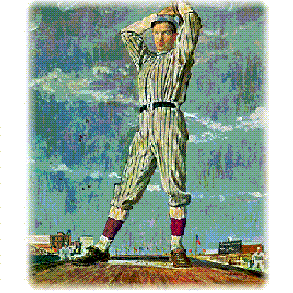 Suddenly
"Catfish" turned to his friend. “Why not bring it back?”
The men paused and looked at each other. Why not? Why not
return to the era when the game of baseball was born...when the game was
played for the sheer joy of it. Why not honor the memory of the players
and the fans who played the game for the simple sport of it? The idea
electrified them. Suddenly
"Catfish" turned to his friend. “Why not bring it back?”
The men paused and looked at each other. Why not? Why not
return to the era when the game of baseball was born...when the game was
played for the sheer joy of it. Why not honor the memory of the players
and the fans who played the game for the simple sport of it? The idea
electrified them.
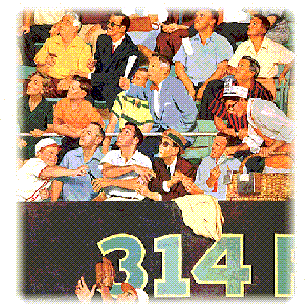 The
two friends realized it could be the perfect time to resurrect the
original “spectator” version of the game — on the very night the
World Series had been taken from its millions of fans. Adopting
the unplayed 1994 World Series as the official starting date for a
new era in baseball, they dedicated themselves to reviving the memory of
the men who had once played for the sheer joy of the spectators —
and vowed to give the game back to the fans. The
two friends realized it could be the perfect time to resurrect the
original “spectator” version of the game — on the very night the
World Series had been taken from its millions of fans. Adopting
the unplayed 1994 World Series as the official starting date for a
new era in baseball, they dedicated themselves to reviving the memory of
the men who had once played for the sheer joy of the spectators —
and vowed to give the game back to the fans.
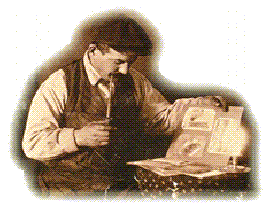 Now
the search began for "The Original Beer Can Baseball." Night after
night, weekend after weekend, the two searched age-old records. Crawled
through hot dusty attics. Scoured obscure newspaper clippings.
Researched private papers and weathered old scorecards. Even reassembled
hand-scrawled family letters passed down through generations. Until
finally...one night...they knew they had it...! Now
the search began for "The Original Beer Can Baseball." Night after
night, weekend after weekend, the two searched age-old records. Crawled
through hot dusty attics. Scoured obscure newspaper clippings.
Researched private papers and weathered old scorecards. Even reassembled
hand-scrawled family letters passed down through generations. Until
finally...one night...they knew they had it...!
Finally,
after months of painstaking research and grueling reconstruction,
they had it. Miller and Fogel had recreated the original game which,
legend says, generations earlier had launched America’s greatest
pastime. The play. The rules. The magic. The excitement. After
adding just a few twists to update the game for play in the modern era,
this was finally it: The Original Beer Can Baseball.
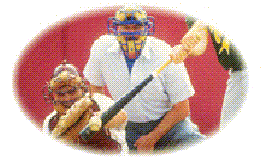 And
so the game embarks on another new passage along its storied journey
through time as the rebirth of The Original Beer Can Baseball
adds yet another chapter to the still unfolding pages of baseball's
fabled traditions. And
so the game embarks on another new passage along its storied journey
through time as the rebirth of The Original Beer Can Baseball
adds yet another chapter to the still unfolding pages of baseball's
fabled traditions.
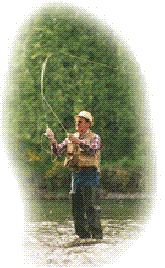 Those
traditions continue today at the Beer Can Baseball World Headquarters
in Lewisburg, Pennsylvania. Indeed, it is fitting that the game’s
rebirth has begun in this picturesque town overlooking the scenic
Susquehanna River. Historians long have noted baseball’s special
connection to the historic waters of the Susquehanna. It was at
the source of this placid river that the game of baseball was first
played 115 years ago in Cooperstown, New York. A half century
later along these shores — just a few hours down-stream — Little
League Baseball was born in the heart of Pennsylvania's rolling endless
mountains, in the city of Williamsport. Those
traditions continue today at the Beer Can Baseball World Headquarters
in Lewisburg, Pennsylvania. Indeed, it is fitting that the game’s
rebirth has begun in this picturesque town overlooking the scenic
Susquehanna River. Historians long have noted baseball’s special
connection to the historic waters of the Susquehanna. It was at
the source of this placid river that the game of baseball was first
played 115 years ago in Cooperstown, New York. A half century
later along these shores — just a few hours down-stream — Little
League Baseball was born in the heart of Pennsylvania's rolling endless
mountains, in the city of Williamsport.
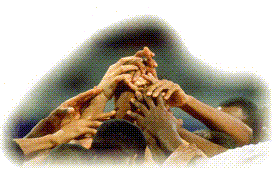
Those
special connections live on. On the Susquehanna’s historic banks,
Major League Baseball’s greatest legends are enshrined forever at the
Hall-of-Fame in Cooperstown, and the world's greatest Little League
teams have played for over half a century each summer in The Little
League World Series in Williamsport.
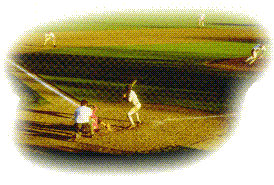
And
now just a few miles further downstream along those same fabled waters,
the greatest Beer Can Baseball players are remembered for all
time at The Beer Can Baseball Hall Of Fame, located in historic
downtown Lewisburg, Pennsylvania.
Today
fans are once again playing the original game that legend says started
it all. For the sheer joy of it. For the excitement. With their friends.
And with others around the world in international tournament play.
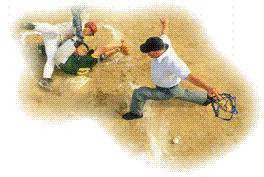 Finally,
it's safe again for fans everywhere to enjoy the thrill of playing
America’s favorite pastime. And the legendary Alexander
Doubleday's infamous last words will never again be forgotten:
Don’t Just Watch The Game Play The Game!® Finally,
it's safe again for fans everywhere to enjoy the thrill of playing
America’s favorite pastime. And the legendary Alexander
Doubleday's infamous last words will never again be forgotten:
Don’t Just Watch The Game Play The Game!®
|